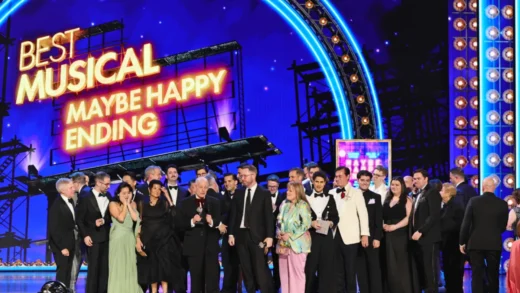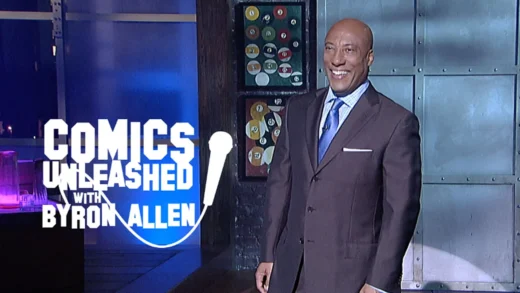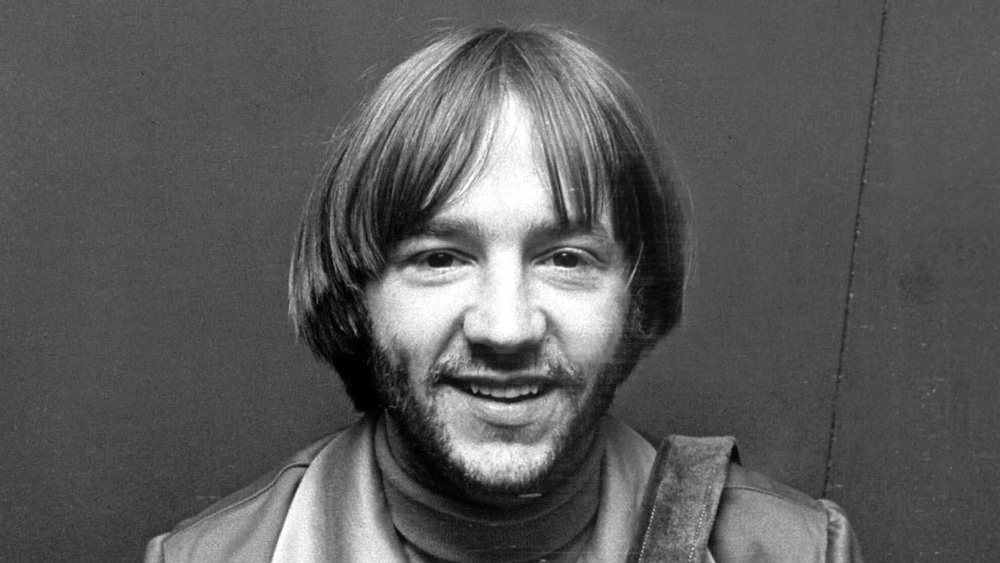Peter Tork, the guitarist and wise-cracking character in the 1960s teen-pop sensation the Monkees, died today at the age of 77, a rep for the group confirmed to Variety. Speaking with the Washington Post, Tork’s sister Anne Thorkelson did not specify a cause of death, although the guitarist had been diagnosed with a rare form of cancer a decade ago.
Tork wrote a blog piece for the Post about his diagnosis with adenoid cystic carcinoma after beginning treatment in 2009. Through most of the 10 years since, he had been able to resume an active musical life, participating in Monkees reunion shows as recently as 2016, and recording his own solo blues albums, the last of which, “Relax Your Mind,” a Lead Belly tribute, came out in early 2018.
“There are no words right now… heartbroken over the loss of my Monkee brother, Peter Tork,” Mickey Dolenz tweeted.
Michael Nesmith posted a lengthier appreciation. “Pardon me if I am being dogmatic — but I think it is harder to put together a band than a TV show — not to take anything away from TV shows,” he wrote. “These days I watch MSNBC — mostly aghast at what I see — and what I am missing is ‘madcap.’ … Peter Tork died this a.m. I am told he slipped away peacefully. Yet, as I write this my tears are awash, and my heart is broken. Even though I am clinging to the idea that we all continue, the pain that attends these passings has no cure. It’s going to be a rough day. I share with all Monkees fans this change, this ‘loss,’ even so. PT will be a part of me forever.
“I have said this before — and now it seems even more apt: the reason we called it a band is because it was where we all went to play,” Nesmith continued. “A band no more, and yet the music plays on, an anthem to all who made the Monkees and the TV show our private — dare I say ‘secret’ — playground. As for Pete, I can only pray his songs reach the heights that can lift us and that our childhood lives forever — that special sparkle that was the Monkees. I will miss him — a brother in arms. Take flight my Brother.”
The Monkees’ legacy is a complicated one that even today polarizes serious rock fans, many of whom argue, as Nesmith did in his statement, that their transformation from a “manufactured” group to a “real” one deserves at least as much credit as anything with more organic beginnings. “Sometimes the question of the [Rock and Roll] Hall of Fame comes up, and I’ve been thinking lately that I don’t know whether the Monkees belong in the Hall of Fame,” Tork said, modestly, to the Baltimore Sun in 2016. “I mean, I would vote for us if I had a vote. But what I can say is if there was a hall of fame for television casts who became pop groups in their own right, we would be the only candidate.”
While the Monkees were a television-centric, American version of the Beatles as depicted in “A Hard Day’s Night,” Tork and fellow guitarist Mike Nesmith were serious musicians who paid their dues on the folk and rock scenes of the early 1960s; vocalist Davy Jones and singer/drummer Micky Dolenz were former child actors. Tork played the “Ringo” role in the group, as a charming and goofy comic foil.
“Peter was pure in spirit and dedicated to music all of his life,” said their manager, Andrew Sandoval, told Variety. (Sandoval wrote a book about the group in 2005 before going on to join their team.) “Peter’s greatest thrill was sharing a song and a story in the folk tradition. He left behind some incredible songs of his own, like ‘For Pete’s Sake’ from the ‘Headquarters’ album, which defined the essence of his philosophy.”
Tork had been part of the Greenwich Village folk scene before becoming instantly famous. “To be in Greenwich Village in the ’60s was pure joy; to be young was pure bliss,” he said in an interview with UK Music Reviews. “When I talk about having a well favored life, I went from Greenwich Village almost directly into The Monkees. … I had first heard about the Monkees in the early summer of 1965 from a good friend of mine, one Mr. Stephen Stills,” who had been considered for the show himself and made a call to Tork, whom he figured would be better suited.
“With the Monkees, it was timing that a lot of kids came up and they were the younger brothers and sisters of the kids who loved the Beatles and they wanted something of their own,” Tork said in an interview with Rock Cellar in 2016. “And along came the Monkees and they had something of their own, oh boy, oh boy, oh boy. They were like, You can keep your damn Beatles, I’ve got The Monkees! A lot of kids grew up that way and some of them became musicians,” he added, explaining why younger rockers like Rivers Cuomo, Ben Gibbard and Noel Gallagher had eagerly agreed to write songs for the Monkees’ 2016 comeback album, “Good Times.”
Tork attributed the huge initial success of the Monkees to two factors. “We were lucky to lock into one of the greatest song writing gangs of all time. … We had Carole King writing songs for us. Please, there has never been a better songwriter — really, come on,” he said to UK Music Reviews. “Secondly there was television. When you got to see the guys playing off of each other, even if they were reading scripts and playing parts, you still got a sense of who they were. There was a much more personal connection to us as people with the audience than there was with even the Beatles or the Stones, or even the more recent boy bands.”





